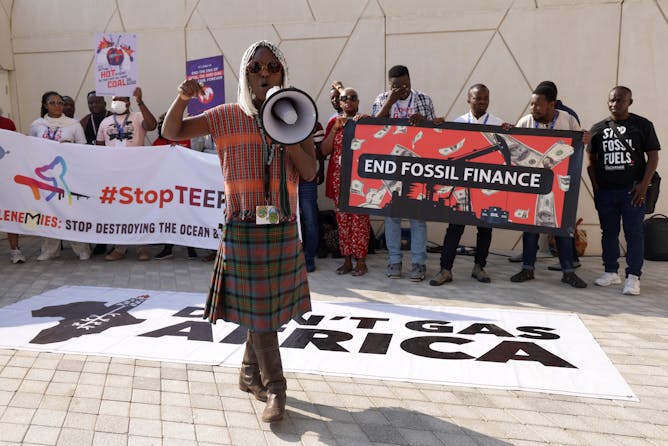|
Agreeing to a final text to wrap up COP28 proved to be a tough job for the climate summit president Sultan al-Jaber. But, in the end, he did it. Inevitably, the result sparked markedly different reactions. Some hailed the summit as ‘historic’ because everyone signed up to transitioning away from fossil fuels in an attempt to reach global net zero emissions by 2050. Others lambasted the final agreement for being weak because it failed to commit countries to the tougher job of phasing out fossil fuels altogether.
Matt McDonald assesses whether the commitments are enough as climate change gathers pace while Alaa Al Khourdajie, Chris Bataille and Lars J Nilsson explain how COP28 missed the chance to set a firm, scientifically-backed benchmark for future fossil fuel use. Looking at the conference through an African lens, Bamidele Olajide writes that the continent gained a great deal from taking a strong position in several negotiations.
|

Matt McDonald, The University of Queensland
Yes, there was some progress at COP28. But the international community is not taking this enormous climate challenge as seriously as it should.
|

Alaa Al Khourdajie, Imperial College London; Chris Bataille, Columbia University; Lars J Nilsson, Lund University
The distinction between ‘abated’ and ‘unabated’ fossil fuels is crucial, yet remains ambiguous.
|

Bamidele Olajide, University of Lagos
COP28 was Africa’s ‘most vocal COP ever’. African leaders’ assertiveness paid off with new climate finance deals being struck.
|
|
|
-
Gemma Ware, The Conversation
The first of two episodes of The Conversation Weekly podcast exploring how the Israel-Gaza war is affecting life at universities.
-
Peter Viggo Jakobsen, Royal Danish Defence College; Troels Burchall Henningsen, Royal Danish Defence College
Piracy off the Somali coast remains a high-risk undertaking with a low probability of success.
-
Gregory F. Treverton, USC Dornsife College of Letters, Arts and Sciences
Conflict has escalated between Joe Biden and Israeli leader Benjamin Netanyahu over the conduct of the Israel-Hamas war. But a national security veteran says the US has little leverage over Israel.
-
Serina DeSalvio, Texas A&M University
Spices have been prized commodities for centuries. Today, ‘warm’ flavors boost our health and spirits in fall and winter.
|
|

Chip Colwell, University of Colorado Denver
Presents are about giving, receiving and reciprocating, and how this cycle strengthens relationships.
|